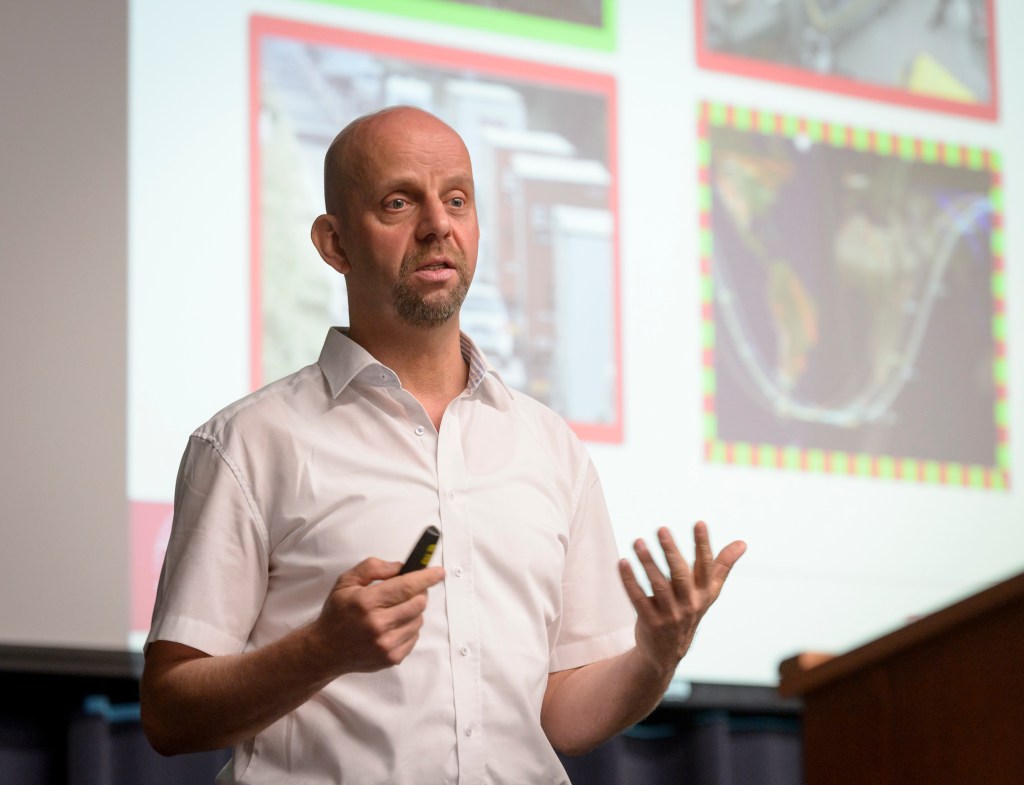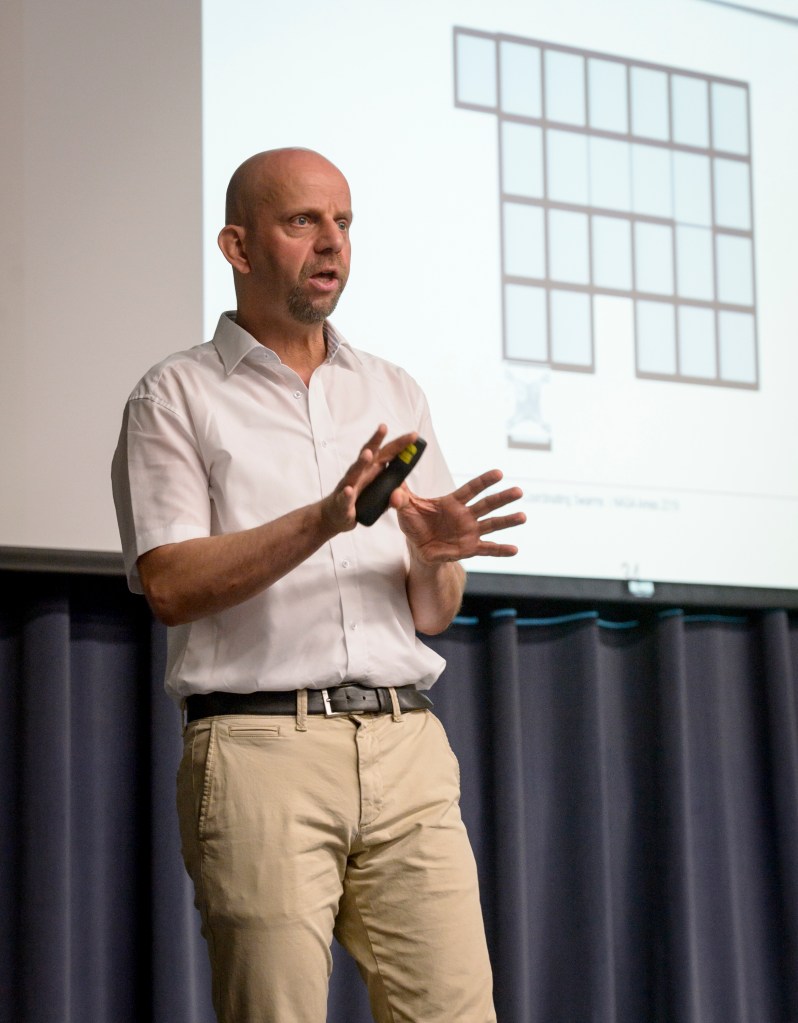Dr. Sándor Fekete: From nano to Mega: Coordinating swarms of objects at extreme dimensions
Nature often inspires technology. Swarm behavior is a proven evolutionary approach for survival of a collective. Robotics seeks to apply swarming as a method, in part, to increase efficiency, reduce risk, increase redundancy in completing tasks in fields such as remote sensing measurements and space mission operations. However, reproducing swarm behavior represents multiple control challenges, including self-organization and environmental feedback. To address these challenges, mathematical models, automation and computation advancements are necessary. Dr. Sándor Fekete presented his research on the algorithmic approach for the configuration of swarms.
Abstract:
Coordinating and reconfiguring arrangements of objects poses important questions at various dimensions, ranging from tiny particles all the way to far-away satellite swarms. Ironically, systems of these very small and very large distances share a fundamental property: It becomes difficult to use “external” computation, in which a powerful central computing device is provided with input about the system, and output is fed back into the system. Instead, it becomes important to consider “internal” computation, in which algorithms and execution remain within the system itself, even if that comes at the expense of processing power. Additional challenges arise from coordinating the parallel motion of larger and larger sets of objects in a globally efficient manner. This talk will describe a variety of algorithmic approaches to coordination and reconfiguration challenges. These include (1) Algorithmic aspects of “programmable matter”, i.e., algorithmic methods for controlling structures that can change their physical properties (shape, density, moduli, conductivity, optical properties, etc.) in a programmable fashion. (2) Optimization methods for coordinated motion planning, in which a large swarm of objects needs to be reorganized in a minimum amount of time. (3) Distributed approaches for coordinating the downlink activities of satellite swarms with more than 1000 spacecraft.
Biography:
Sándor Fekete holds the chair for Algorithmics in the Department of Computer Science at the Braunschweig University of Technology in Germany. He is also director of the interdisciplinary Research Center for Informatics, Information Technologies and Digitalization (TUBS.digital). Having received his Ph.D. in mathematics from the University of Waterloo in Canada, he has held positions at the University of Cologne, SUNY Stony Brook and TU Berlin. His research interests range all the way from theoretical foundations of algorithms and optimization (with a focus on geometric and distributed methods) to applications areas such as practical computer science, electrical engineering, economics, biology and physics, leading to about 250 peer-reviewed publications with about 250 different coauthors.



































